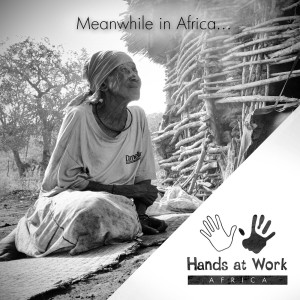
Over the centuries, probably more traditions and legends have accumulated around the wisemen than any other aspect of the Christmas story. Tradition has pictured them as Kings and given them names, even though the gospel simply refers to them as nameless, wise men from the East. These assumptions were no doubt made on the back of Isaiah's prophetic words, " Nations shall come to your light and Kings to the brightness of your dawn. They shall bring gold and frankincense and shall proclaim the praise of the Lord." Tradition has one coming from Arabia, another as King of Sheba, and a black man from Egypt. What these legends are serving to emphasize is that the coming of Jesus is no mere local event drawing a few curious shepherds, nor is it confined to one nation, one people, the Jews, but Jesus has come for all people, black and whites, Jew and Gentile, rich and poor. In a sense we are there, kneeling before the baby through these strange and mysterious visitors because they demonstrate Jesus is for each of us.
The general consensus about the gifts is that they emphasize the significance of Jesus. Gold for a King. Frankincense for worship. And myrrh for the savior who was to die for us. I much prefer the suggestion of a monk and theologian from the 12th century called Bernard of Clairvaux, who suggested that the gold was to enable Mary and Joseph to flee as refugees into Egypt. The frankincense was to sweeten the air in the stable and the Myrrh, wait for it... Was for deworming, the infant Jesus. Now, what's I love about this insight is the sheer, earthy practicality that God shares our life, born in a stable - rootless. Then having to flee as a refugee and experiencing the most basic of human needs.
What Bernard realized so clearly is that here is God sharing all the frailties and risks of human life in order to be Emmanuel, God with us. We have a saying in Hands at Work that we go to the poorest and most vulnerable communities off the tar road. Here in these gifts, we see God stooping to share our lives and our vulnerability right off the tar road.
Why? In order to bring us back to him. So it is hope for us all that the wisemen found. But what the poet, T.S. Elliot recognized so clearly in his poem, The Journey of the Magi, it is a hope that leaves us restless. Okay. The pictures, the wise men returning home, no longer at ease here in the old dispensation.
For when we find Emmanuel, God with us, in the baby in the manger, we can never rest content until all God's people know his love and the life of his kingdom. May this restless hope be yours this Christmas time. Amen.
More Episodes
 2018-03-17
2018-03-17
 2018-03-03
2018-03-03
 2018-02-24
2018-02-24
 2018-02-10
2018-02-10
 2018-02-03
2018-02-03
 2018-01-28
2018-01-28
 2017-07-24
2017-07-24
 2017-07-17
2017-07-17
 2017-07-10
2017-07-10
 2017-06-19
2017-06-19
 2017-06-12
2017-06-12
 2017-06-05
2017-06-05
 2017-05-29
2017-05-29
Create your
podcast in
minutes
- Full-featured podcast site
- Unlimited storage and bandwidth
- Comprehensive podcast stats
- Distribute to Apple Podcasts, Spotify, and more
- Make money with your podcast
It is Free
- Privacy Policy
- Cookie Policy
- Terms of Use
- Consent Preferences
- Copyright © 2015-2024 Podbean.com






